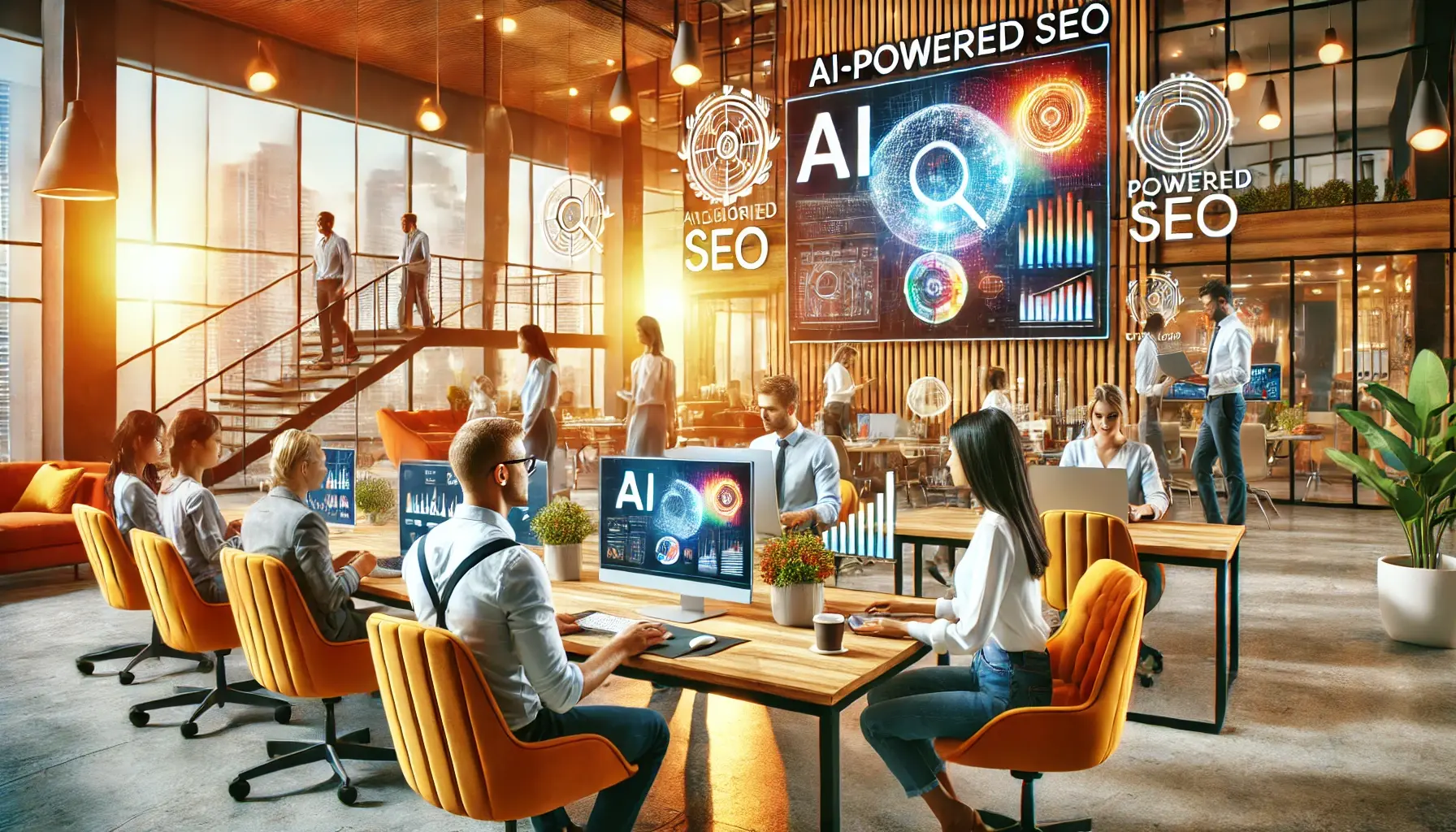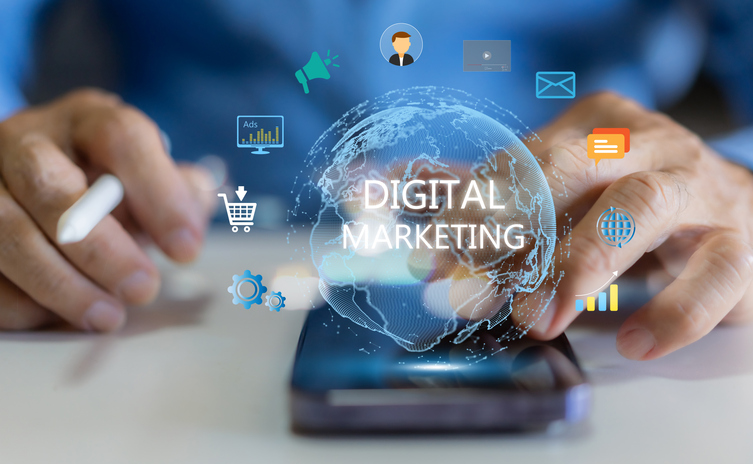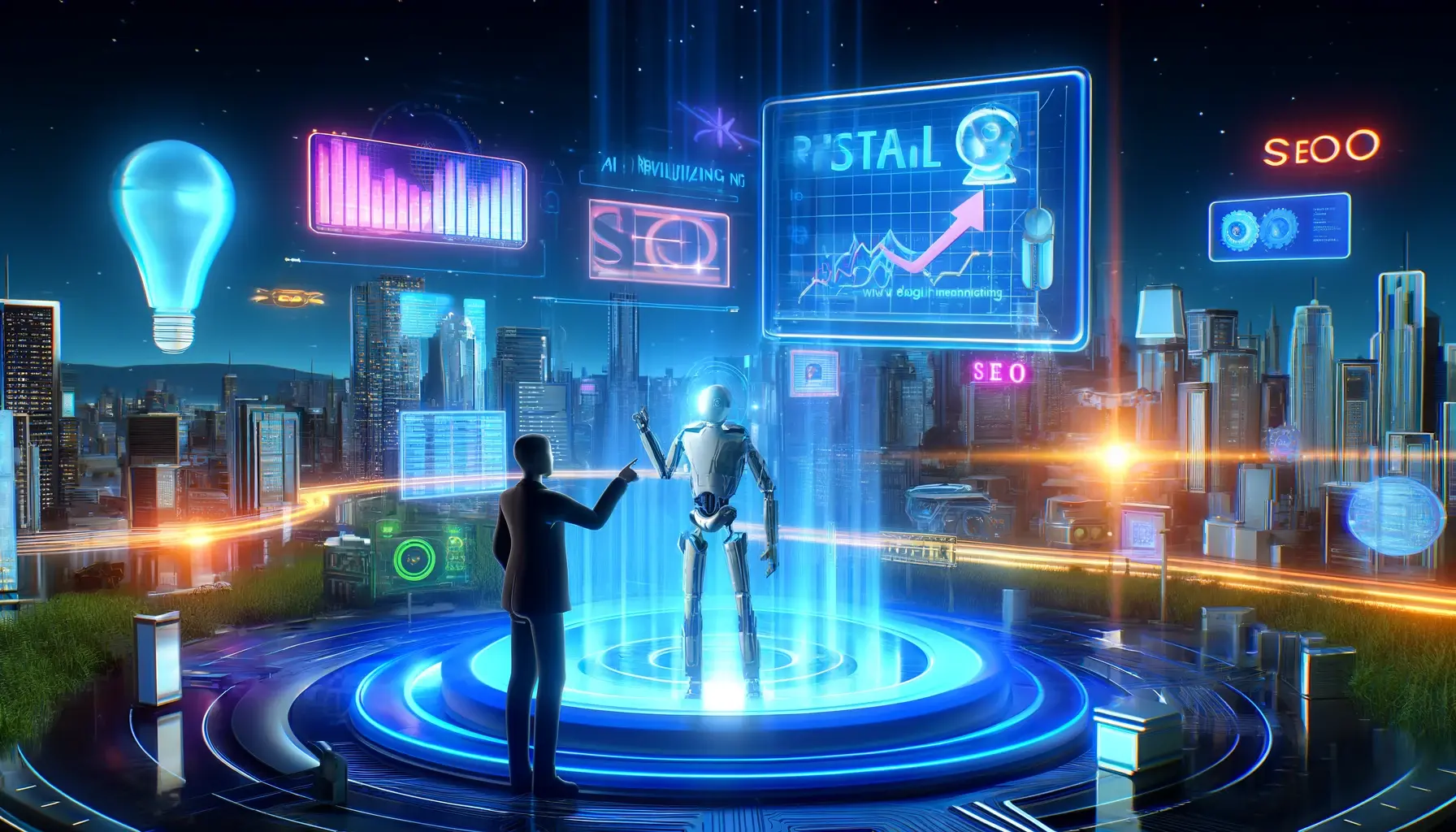4 min read
AI-powered SEO: Boost your digital marketing efforts
AI in Digital Marketing: Revolutionizing the Future of Advertising in the USAArtificial Intelligence (AI) has become a buzzword across industries,...
4 min read
![]() The Amazing Team at Focus Digital Marketing
:
Jun 4, 2024 7:30:00 AM
The Amazing Team at Focus Digital Marketing
:
Jun 4, 2024 7:30:00 AM
The Future of AI in Digital Marketing: Transforming the Landscape in the USA
Introduction:
As the world continues to witness rapid technological advancements, the emergence of artificial intelligence (AI) holds significant potential for various industries. One area that stands to benefit immensely from AI integration is digital marketing. This article aims to explore the future of AI in digital marketing, with a focus on its relevance and impact in the USA.
Defining AI in Digital Marketing:
AI refers to computer systems designed to simulate intelligent human behavior and decision-making. In the context of digital marketing, AI utilizes machine learning algorithms to process vast amounts of data, derive insights, and automate various marketing tasks.
Key Components of AI in Digital Marketing:
1. Natural Language Processing (NLP): AI-driven NLP enables chatbots and virtual assistants to understand and respond to queries from consumers, providing personalized experiences and streamlining customer interactions.
2. Predictive Analytics: AI algorithms analyze customer data to predict future user behavior, allowing marketers to make data-driven decisions and optimize their marketing strategies.
3. Image and Video Recognition: AI-powered technologies can analyze visual content, such as images and videos, to identify objects, faces, patterns, and sentiments. This capability enables marketers to gather valuable insights from user-generated content.
Implementation Steps of AI in Digital Marketing:
1. Data Collection and Integration: Marketers must collect and consolidate data from various sources, including customer interactions, website analytics, social media platforms, and CRM systems.
2. Machine Learning Models: Employing machine learning algorithms, marketers can train AI models to recognize patterns, predict outcomes, and segment customer groups.
3. Automation and Personalization: AI enables marketers to automate repetitive tasks, such as email campaigns and social media postings, while also tailoring content and promotions to individual customer preferences.
Benefits of AI in Digital Marketing:
1. Enhanced Customer Experiences: AI enables marketers to provide personalized and real-time responses to customer queries, resulting in improved customer satisfaction and loyalty.
2. Improved Efficiency and Cost-effectiveness: Automating repetitive tasks frees up resources and allows marketers to focus on strategy, resulting in cost and time savings.
3. Data-driven Insights: AI algorithms can process vast volumes of data to gain valuable insights, empowering marketers to make informed decisions and target their audience more effectively.
Challenges in Implementing AI in Digital Marketing:
1. Data Privacy and Security: With the collection and processing of large amounts of customer data, ensuring data privacy and protection becomes crucial, necessitating adherence to stringent regulations.
2. Skill Gap: Implementing AI in digital marketing requires a workforce well-versed in AI technologies and analytics, which may pose a challenge for organizations lacking skilled personnel.
3. Ethical Considerations: With AI-powered tools making decisions autonomously, ethical concerns arise, such as biases in algorithms and potential misuse of personal data.
Analytics Report and Case Studies:
Numerous reports highlight the increasing relevance of AI in digital marketing. For instance, a study by Gartner predicts that by 2025, 75% of customer interactions will be managed without human intervention. Additionally, companies like Coca-Cola and Sephora have successfully implemented AI-powered chatbots to enhance customer engagement and drive sales.
Future Trends in AI-based Digital Marketing:
1. Hyper-personalization: AI will continue to enable marketers to deliver highly targeted content and offers, providing customers with hyper-personalized experiences.
2. Voice Search Optimization: Voice assistants, such as Amazon's Alexa and Apple's Siri, will drive the need for marketers to optimize their content for voice-based searches, fundamentally transforming SEO strategies.
3. Augmented Reality (AR) and Virtual Reality (VR): AI combined with AR and VR technologies will revolutionize product demonstrations and create immersive, interactive experiences for customers.
Conclusion:
The future of AI in digital marketing is promising, revolutionizing the way businesses understand and interact with consumers. With its ability to analyze vast amounts of data, personalize experiences, and automate tasks, AI empowers marketers to drive business growth and provide exceptional customer experiences. To stay ahead in this evolving digital landscape, organizations must embrace AI technologies and leverage its numerous benefits.
To deepen your understanding and explore the world of AI in digital marketing further, we recommend visiting the Focus Digital Marketing website. It offers valuable insights, case studies, and resources to help businesses navigate the ever-changing digital landscape with the power of AI.
FAQs:

4 min read
AI in Digital Marketing: Revolutionizing the Future of Advertising in the USAArtificial Intelligence (AI) has become a buzzword across industries,...

9 min read
Exploring the Evolution of Digital Marketing Digital marketing has come a long way since its inception. In the eaZarly days of the internet,...

5 min read
AI for Digital Marketing: Revolutionizing the Landscape in the USAIn today's digital age, the importance of leveraging technology to enhance...